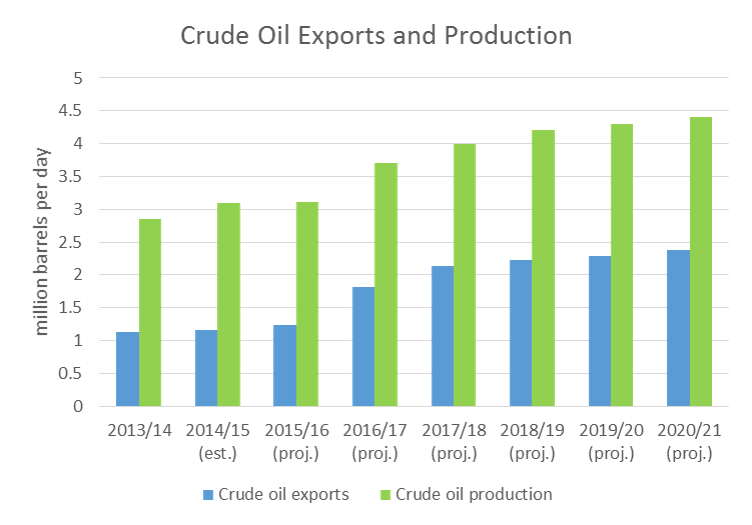On February 16, Russia and three OPEC members – Saudi Arabia, Qatar, and Venezuela – agreed to freeze oil production if other oil producers did so as well. Iran's OPEC envoy Mahdi Asali rejected the proposal, claiming that it would be “illogical” for Iran to freeze output. Other OPEC members, including Kuwait, Qatar, and the United Arab Emirates, reportedly agreed to comply with the freeze.
The push by oil producers to reduce output comes after months of sinking oil prices. In January, oil prices dropped below $30 per barrel for the first time in 12 years. After meeting with his counterparts from Qatar, Iraq, and Venezuela on February 17, Iranian Oil Minister Bijan Zanganeh acknowledged the oversupply in the market and welcomed the production freeze. But he clarified that Iran should not be required to participate.
The Islamic Republic has been eager to ramp up oil production, which stalled under tightened U.S. and E.U. sanctions in 2010 and 2012. By 2014, Iran's oil exports had plummeted from 2.5 million barrels per day to 1.4 million barrels per day, their lowest levels since 1986. After sanctions were lifted in January, Iran announced plans to increase oil production to 500,000 barrels per day within six months. The following are quotes from officials on the proposed OPEC freeze.

Iran
Oil Minister Bijan Zanganeh
“What is important is that, first, the market is oversupplied, and, second, that Iran will not overlook its quota.”
– Feb. 16, 2016, according to the press
“Today we had a good meeting and the report of yesterday’s meeting (in Doha) was presented. We welcome cooperation between OPEC and non-OPEC (producers).”
“The decision taken so that OPEC members and non-OPEC (countries) freeze their production ceiling in a bid to stabilize the market and improve prices in the interest of consumer and producer is also supported by us.”
“We discussed [Iran’s return to the oil market] with the Iraqi, Qatari, and Venezuelan ministers of oil and energy and they viewed the reality with a logical view.”
– Feb. 17, 2016, according to the press
OPEC envoy Mahdi Asali
"Asking Iran to freeze its oil production level is illogical.”
"How can they expect Iran to cooperate now and pay the price? We have repeatedly said that Iran will increase its crude output until reaching the pre-sanctions production level.”
– Feb. 17, 2016, according to the press
"These countries increased their production by 4 million barrels when Iran was under sanctions…Now it's primarily their responsibility to help restore balance on the market. There is no reason for Iran to do so."
– Feb. 17, 2016, according to the press
Iran is cautiously supporting the oil output freeze — but doesn't plan to join it https://t.co/IF5xvu2G5U pic.twitter.com/6Jc9dldSbk
— Financial Times (@FT) February 18, 2016
Other oil producers
Russian Oil Minister Alexander Novak
"We are ready to maintain on average in 2016 the level of oil production of January 2016 and not exceed it."
– Feb. 17, 2016, according to the press
Saudi Oil Minister Ali Naimi
"The reason we agreed to a potential freeze of production is simply the beginning of a process…We don't want significant gyrations in prices. We don't want a reduction in supply. We want to meet demand. We want a stable oil price."
– Feb. 17, 2016, according to the press
Kuwaiti Acting Oil Minister Anas al Saleh
"Kuwait hopes the agreement would provide a positive atmosphere for oil prices, and for the market to regain balance, and calls on all to support stability of markets."
– Feb. 17, 2016, according to the press
United Arab Emirates Energy Minister Suhail bin Mohammed al Mazrouei
"Current prices are not suitable ... and will force producers to hold production levels and limit investments in the higher cost oil (production)."
– Feb. 18, 2016, according to the press
